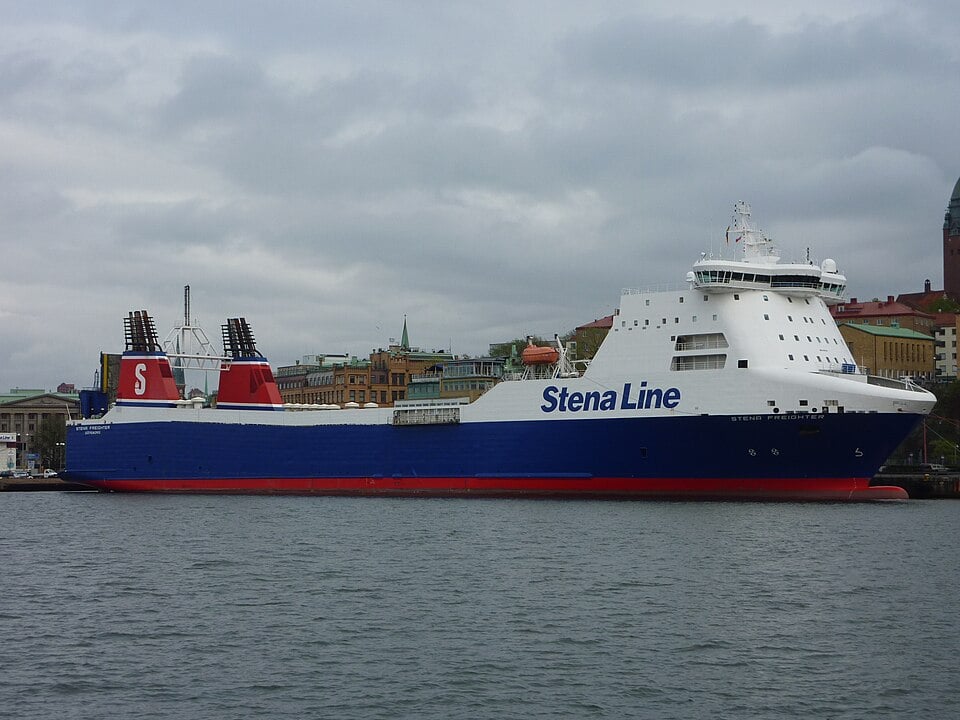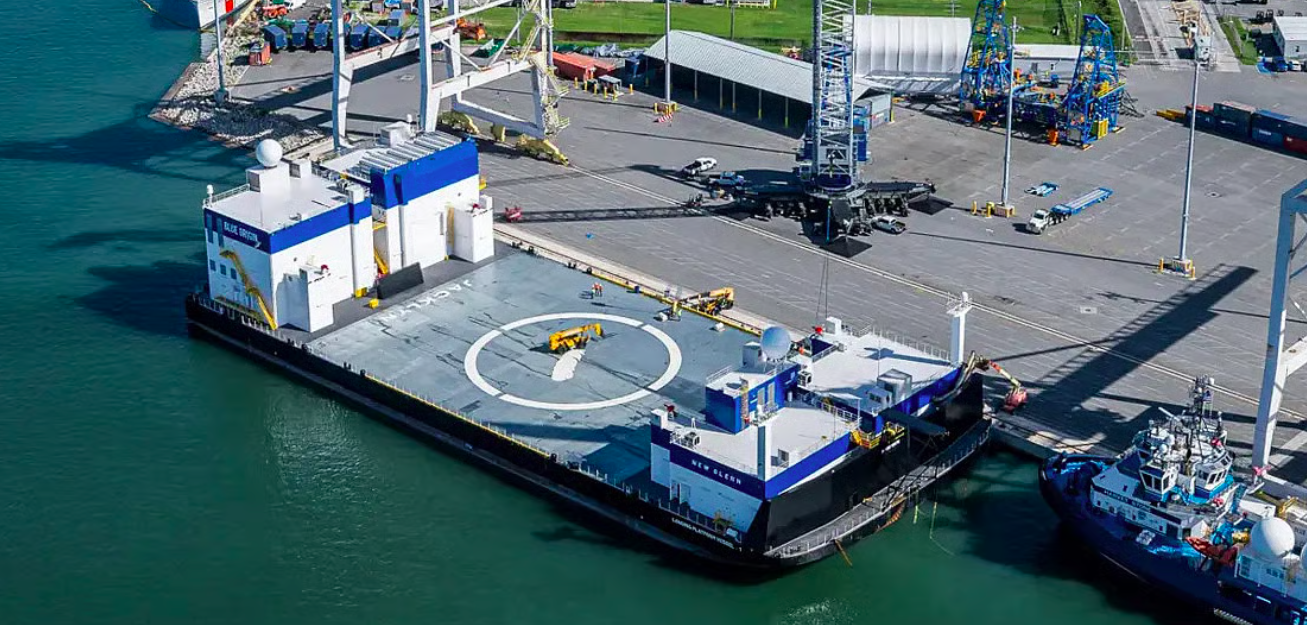Blue Origin needed a ship to catch rockets falling from space. They bought a massive roll-on/roll-off cargo ferry, hired engineers to convert it, and named it Jacklyn after Jeff Bezos's mother. Then, after four years of work, they scrapped the entire project and started over.
The original Jacklyn, formerly a Royal Fleet Auxiliary vessel called Sea Chieftain, arrived at Blue Origin's Port Pensacola facility in 2018. They had an ambitious plan to convert this 180 meter ship into a moving landing platform capable of catching New Glenn rocket boosters while underway in the Atlantic. Company executives highlighted the advantages that a large ship like this offered with superior stability in rough seas compared to static barges, and it could steam to recovery locations rather than being towed. The hydrodynamic stabilisation technology would increase successful recovery rates and keep launches on schedule regardless of ocean conditions.
 The original ferry that was purchased by Blue Origin and became their first recovery ship carrying the name 'Jacklyn' (Credit : Bo Randstedt)
The original ferry that was purchased by Blue Origin and became their first recovery ship carrying the name 'Jacklyn' (Credit : Bo Randstedt)
But by early 2022, Blue Origin abandoned the conversion. The original Jacklyn was towed to Brownsville, Texas that August for scrapping. The company had decided on a different approach entirely, to build a purpose designed barge from scratch.
Construction of the new Jacklyn began in Romania in early 2023. Unlike its predecessor, this vessel would be unpowered, a flat barge measuring 116 metres long and 45 metres wide, designed specifically for one task. Damen Shipyards in Brest, France completed the finishing work in mid-2024, and the barge departed for Florida that August, towed by the support vessel Harvey Stone across the Atlantic.
The name transferred to the new platform, keeping Bezos's tribute to his mother intact. This Jacklyn officially became Landing Platform Vessel 1, though few use the formal designation. The barge incorporates autonomous systems to reduce crewing requirements during recovery operations. When a booster lands, a Recovery Remotely Operated Vehicle connects to the rocket's aft module, providing communication, pneumatic, and power links while keeping human crews safely aboard Harvey Stone, positioned over five miles away.
 Landing Platform Vessel 1 (aka Jacklyn) at Cape Canaveral, Florida (Credit : Blue Origin)
Landing Platform Vessel 1 (aka Jacklyn) at Cape Canaveral, Florida (Credit : Blue Origin)
Jacklyn's first real test came in January 2025 during New Glenn's maiden flight. The booster, optimistically named "So You're Telling Me There's a Chance," separated successfully and began its return. Three of seven BE-4 engines reignited for the entry burn, but telemetry froze shortly afterward. Controllers lost contact with the booster at 84,000 feet. Blue Origin later confirmed the rocket was lost during descent, ambitious indeed, but the company had prepared for this outcome with multiple boosters already in production.
Nearly ten months later, New Glenn's second mission is finally ready, carrying NASA's ESCAPADE Mars probes. The booster for this flight bears another Star Wars reference: "Never Tell Me The Odds." This time, Blue Origin CEO Dave Limp stated, landing represents a primary mission objective rather than a bonus goal. The company spent those intervening months analysing the January failure, implementing changes to propellant management systems and making minor hardware modifications.
Whether Jacklyn successfully catches its first rocket or not, the platform represents a pragmatic shift in Blue Origin's recovery strategy, from complex ship conversion to purpose built simplicity, from dynamic positioning to stationary catching, from what seemed elegant to what might actually work!
Source : Blue Origin Youtube Channel

